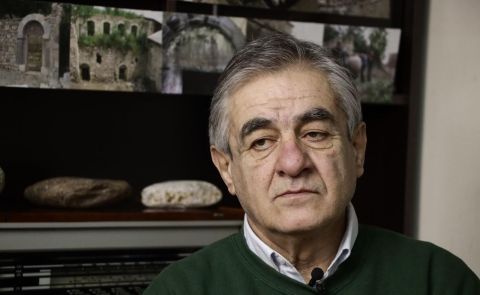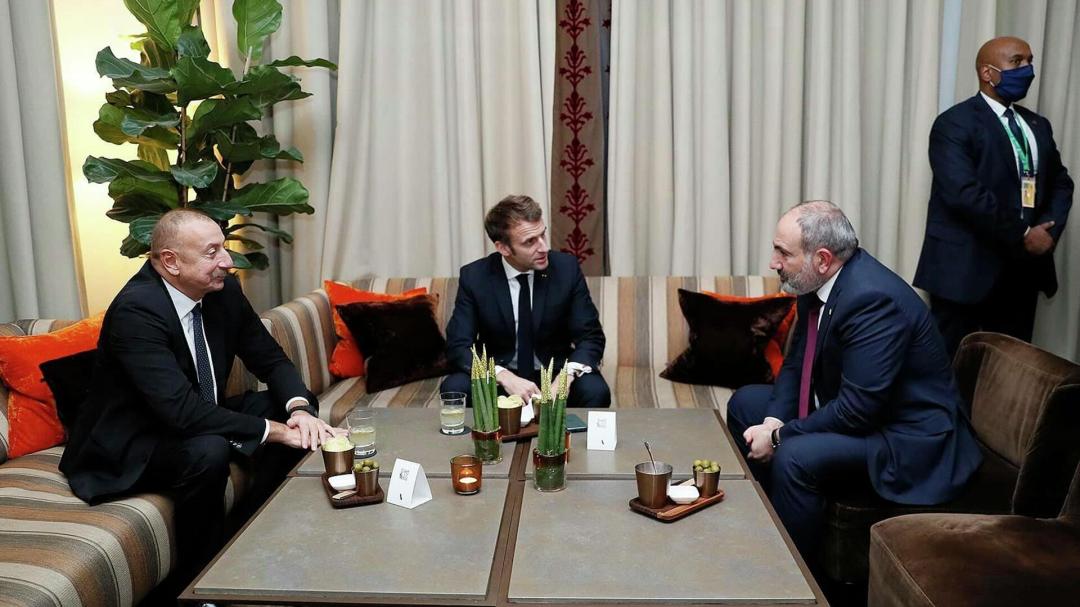
Igor Delanoe: Paris Does Not Have Moscow's Lever in the Caucasus

Franco-Russian relations have seen better days. The relationship already took a sharp turn in 2015, when France canceled a $1.3 billion deal to sell Mistral warships to Russia. Since the invasion of Ukraine, the relationship has become even more adversarial. Paris, London and Berlin are now decoupling from the Russian economy.
However, France's relationship with Russia may be even more adversarial. Russia is gaining ground in sub-Saharan Africa, while France is building a position in what Russia sees as its "Near Abroad", particularly in the Caucasus. Perhaps Armenia is a litmus test in this regard, a country with deep economic, cultural, diaspora, and military ties to both Moscow and Paris.
Seeking a person with the authority to comment on this evolving "post-imperial" standoff, Caucasus Watch reached out to Dr. Igor Delanoe. Mr. Delanoe is a historian educated in France and completed a post-doctoral fellowship at the J.F.Kennedy School in Harvard. He has worked for the better part of a decade as deputy director of the French Russian Analytical Center Observatoire. It would perhaps be an understatement to say that his work has taken a new turn since the war in Ukraine. He is currently in Moscow.
Over the past year, the economic relationship between France and Russia has changed profoundly. How does this affect the prospects for French business in the Caucasus?
Some French companies have moved their business from Russia to the Caucasus, mainly to Armenia, but also to Georgia.
Are Russia and Armenia competing in the Caucasus, particularly when it comes to Armenia, or are they living in parallel worlds regulated by sanctions?
It depends on the level and the countries considered. France is clearly pretending to challenge Russian influence and positions in Armenia, taking advantage of the rift between Pashinyan and Moscow after the Nagorno-Karabakh war in 2020. For France, it is also a revenge on Russia after Moscow scored points in Africa at the expense of French influence.
Paris is also trying (along with India) to sell arms to Armenia, but Yerevan does not have much money. From an economic point of view, I don't understand the rationale in Armenia, since the country's economy is so much tied to Russia (business, energy...).
The effort to separate Armenia from the CSTO may work, but I am not sure that it will provide Armenia with a more secure environment. For France, the interest is twofold: to challenge Russia and Turkey in its immediate neighborhood. However, economic reality and geography should be sources of inspiration for Pashinyan.
In Georgia, the competition is less evident because the Georgian business community is also very much connected to Russia, as are key political figures (but sometimes we are talking about the same people doing business with Russia), and the massive arrival of Russian emigrants will make this connection even stronger. Politically, there has been a de facto normalization of relations between Russia and Georgia since 2019. Here, France does not have much leverage to alter the situation.
Finally, Azerbaijan: France has poor relations with Aliyev, while Russia has cultivated its relations with Baku. Aliyev recently visited Moscow, and there are prospects for developing logistics with Iran.
To sum up, there is a kind of competition, but it is rather asymmetrical, given the different kinds of leverage that Moscow and Paris have in these three countries.
Armenia is gradually looking to France and India to fill a military procurement vacuum. There has been talk of a French "audit" of air defense capabilities, while Armenia is "freezing" its membership in the CSTO. Is this competition or multipolarism?
My understanding is that Pashinyan wants to implement some kind of Euro-Atlantic rapprochement. Russia is comfortable with India filling the gap. So, at some point, it is understandable that Pashinyan seeks to rebalance foreign relations by also reaching out to Turkey for normalization (hoping that this will influence Baku). Rather than multipolarism, I would speak of rebalancing. But it all depends on the extent of this rebalancing.
The Russian troops have just left Karabakh. There are still 4,000 troops in Syunik, and there are also EU observers on the ground. There has been talk of Iranian engagement. Do you feel that the region is getting "crowded" and that there is room for geopolitical accidents?
Russian troops left Karabakh ahead of schedule because there was not much left to do there, since even Pashinyan recognized this territory as Azerbaijani.
There are still Russian troops on Armenian soil, and Moscow is ready to attract Iran as a security actor to balance the Turkish footprint in the region. As for the EU, Moscow does not consider it a serious security player in the South Caucasus. So the only potential for an incident would be in the hypothetical scenario where Azerbaijan tries to establish territorial continuity with Nakhchivan.
My guess is that at some point, this could match U.S. expectations (because it would cut off Iran's access to Armenia, which is consistent with the Trump administration's so-called policy of "maximum pressure" on Iran), and I don't know to what extent Baku (and Ankara) are willing to further challenge the territorial status quo in the South Caucasus. In that case, I don't know to what extent Russia is willing to intervene (it would be forced to do so in accordance with the security agreements concluded with Armenia) and whether Iran would jump in. This is the real potential for a geopolitical incident.
Interview by Ilya Roubanis
See Also


Irina Mamulashvili: Electoral Interference is a Playbook, not a Recipe

Giorgi Gakharia: The EU Should Engage Georgia Despite Its Democratic Backsliding

Peace or Capitulation? Shahverdyan on Armenia-Azerbaijan Agreement and the Nagorno-Karabakh Crisis

Ali Mousavi Khalkhali: Iran Will Avoid Conflict in the Caucasus

